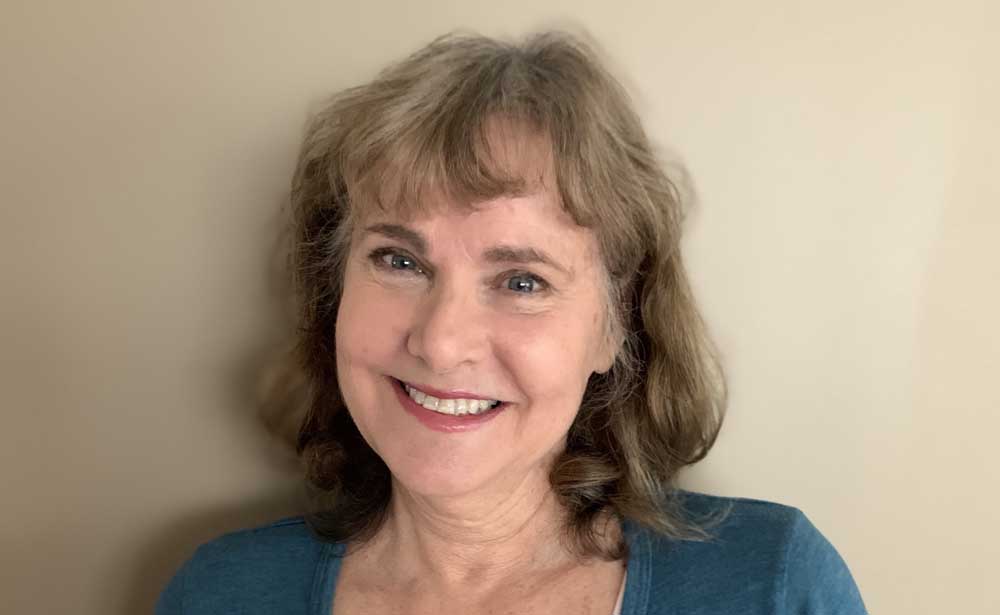GARDEN PLOTS: New garden program focuses on cultivating companions among local seniors
Published 7:00 am Wednesday, May 29, 2024

- Rhonda Nowak
After my mother’s husband died several years ago, she sold their house and moved into a smaller place in a rural community tucked among the Blue Ridge Mountains of North Carolina. Mom loved the peacefulness of living in the country, but I worried about her isolation.
Trending
Sometimes weeks would go by without her seeing another person, and even the daily texts she sent out to family members to let everyone know she was OK didn’t stop me from fretting that she would be lonely or worse, that she would hurt herself somehow and wouldn’t be able to reach anyone for help.
Eventually, Mom moved to the suburbs where she had more access to community services, but I immediately thought of her prior situation when I heard about a new program in Jackson County called Cultivating Companions. Co-sponsored by the OSU Extension Service, Jackson County Master Gardener Association and Rebuilding Together Rogue Valley, the free, seven-week program focuses on building connections among senior citizens through plants and gardening.
Grace Florjancic, coordinator of the Master Gardener program at the Southern Oregon Research and Extension Center in Central Point, told me Cultivating Companions is aimed at reducing social isolation, particularly among rural older adults, by bringing them together at local libraries and having them work collaboratively on a variety of plant-based activities that they can replicate at home.
Trending
“Once you retire, there are fewer daily social interactions that happen in school and at work, especially in rural communities where everyone’s spaced out farther. It’s a little harder to get to community centers, and there aren’t as many programmed events for people to gather. So that’s what the grant focuses on — providing opportunities for rural participants to connect and socialize,” Grace said.
And what better way to make connections than through plants? During once-a-week, two-hour-long sessions at the library, participants will be led by Master Gardener volunteers through engaging gardening, art, and tea-making activities, and they’ll have everything they need to apply their new skills at home. Here’s a sneak preview of each week’s topics:
Week 1: Introduction and growing plants indoors
Week 2: Propagating plants by cuttings
Week 3: Plant poetry and floral design
Week 4: Growing microgreens and herbs indoors
Week 5: Pressing flowers for art
Week 6: Plant pests and natural pest repellants
Week 7: Drying herbs and tea party
The program will take place at the following libraries, and transportation can be arranged:
Medford Library: 1-3 p.m. Fridays, June 7-July 19
Shady Cove Library: 1:30-3:30 p.m. Fridays, June 7-July 19
Butte Falls Library: 3-5 p.m. Tuesdays, June 18-July 20
Applegate Library: 1-3 p.m. Saturdays, July 6-Aug. 31
Ruch Library: 1-3 p.m. Tuesdays, July 9-Aug. 20
Rogue River Library: 1-3 p.m. Wednesdays, July 10-Aug.
I spoke to Kendyl Berkowitz, executive director of Rebuilding Together Rogue Valley, a non-profit organization that provides free home safety assessments and retrofitting services for local seniors, many of whom have disabilities and live in rural areas. Kendyl participated in the Master Gardener training program under Grace’s leadership in 2023 and was looking for a way to incorporate some of what she’d learned about plants into her work with clients.
“I’m very passionate about the work that Rebuilding Together does — making sure people’s home is a place where they feel safe and secure. But I think one piece that gets overlooked is the mental health component,” Kendyl said. “I knew a bridge could be built between the mental health benefits of growing plants and the work that we do.”
Kendyl knows first-hand how uplifting growing plants can be. She said, “During COVID, I found plants to be a source of real joy. I knew we could help fight loneliness and isolation through a gardening program for rural seniors who might feel isolated in their homes.”
She went to Grace with her idea, and together they worked on a grant sponsored by the Oregon Health Authority. Then they created the program curriculum and began getting the word out to targeted groups of people.
Both Grace and Kendyl will teach at a few of the library locations, along with other Master Gardener volunteers. They’ll work together on the outcomes component of the grant, and Kendyl will follow up with participants who are Rebuilding Together clients. “I’m going to do mental health check-ins to help us know how effective the program is,” Kendyl said.
I also contacted Barbara Low, current president of the JCMGA and one of the volunteers for Cultivating Companions. I asked her why she decided to become involved with the program, and here’s what she said:
“As a senior myself, I see the importance of keeping active — mentally and physically. It is very easy to get isolated, especially if you live in a rural area. Gardening is a hobby where you are continually learning and experimenting. It’s an activity where you can adjust what you do based on your physical abilities. At times you have to get inventive, but you can do it. Working with others helps to bounce ideas off each other so that we all learn. It builds friendships as well as gardening success.”
Barbara hopes participants will develop a sense of belonging and a circle of friends, as well as some useful gardening information. For herself as a teacher/mentor, Barbara wants to help others see their potential as gardeners and make contacts with other gardeners that will extend beyond the seven-week program.
As Master Gardener coordinator, Grace is also excited for the volunteers to experience the joy of teaching. “I, personally, love teaching, and I feel great when I hear back from someone who says they tried out something at home and it worked out great,” Grace said. “There’s real value in sharing education about plants with our community.”
Cultivating Companions is different from other Master Gardener programs, which are usually offered on the SOREC campus. “You can’t reach everyone from just one location,” Grace said. “Offering programs at the library can be an avenue for future opportunities to bring OSU Extension programs out into communities more.”
For more information about the Cultivating Companions program, contact Grace Florjancic at grace.florjancic@oregonstate.edu or call 541-776-7371.









